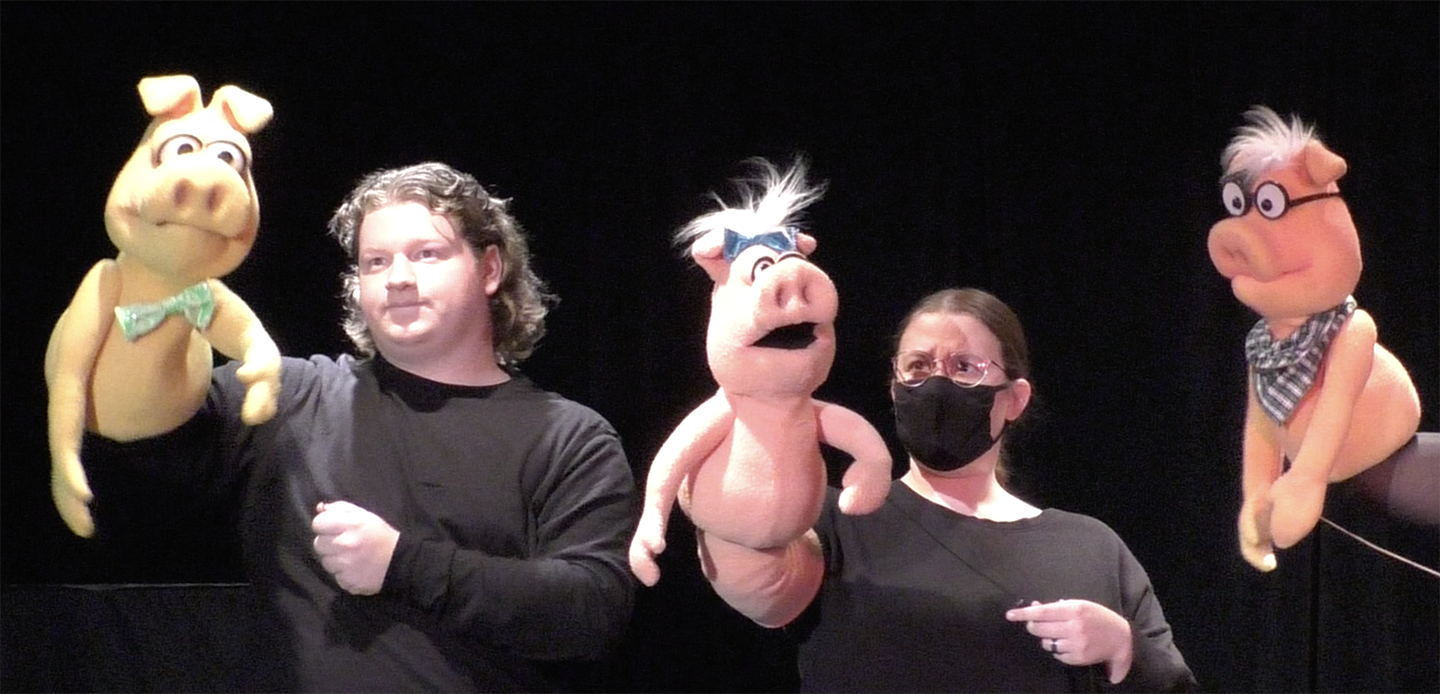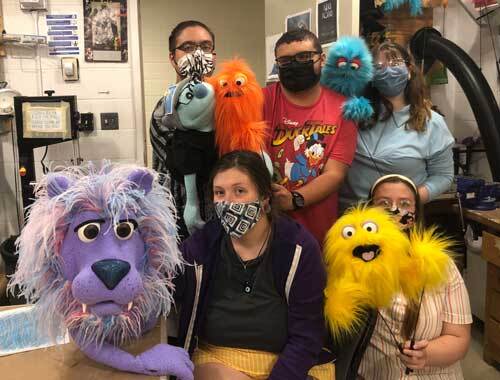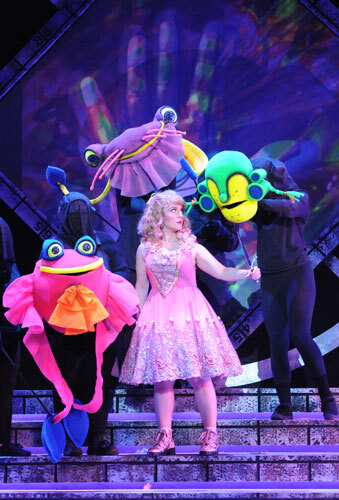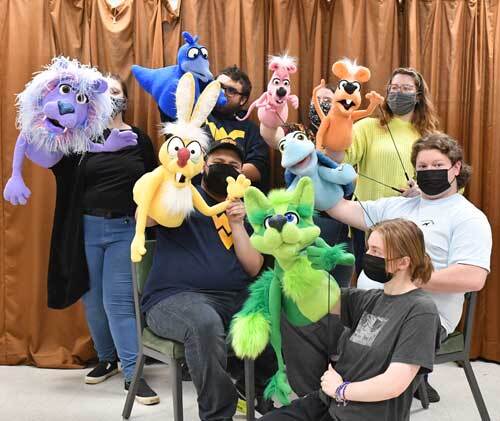
A major in puppetry?
As a West Virginian, Mary McClung is always fighting an age-old battle — a battle of stereotypes.
Many people view her home state as a backward place where the residents are only interested in coal. Ms. McClung knows that stereotype isn’t true, and is actively combating it.
Her weapon of choice? Puppets.
Ms. McClung leads West Virginia University’s puppetry program, one of only two programs of its kind in the United States. The small major has drawn students from across the country who dream of becoming professional puppeteers.
But now, the future of the puppetry major is in jeopardy. Under the university’s sweeping plan of cuts and adjustments, it would be discontinued and merged into the theater major as an area of emphasis.
Ms. McClung is glad puppetry doesn’t face extinction like the university’s language majors and math Ph.D. program. Still, she thinks it’s “awful” that WVU would cut a major that makes it unique.
“Having this little niche program brings a lot of attention to us that not a lot of other things can do,” Ms. McClung said. “It was a very special program. It still is.”
Ms. McClung took the helm of the puppetry program in 2015 after the program’s founder retired. The 40-year-old program’s initial purpose was two-fold: train teachers and introduce West Virginia children to puppetry.
Since then, the major has expanded into an all-encompassing experience of the entertainment industry. In a tiny “puppet lab” on campus, students learn how to make puppets, perform in front of audiences, write scripts and adjust lighting. Popular courses include puppetry construction, puppetry for educators and children’s theater.
“As someone who does puppetry, you really have to know how to do everything,” Ms. McClung said.
Community outreach remains a vital aspect of the program. Puppetry students travel to West Virginia schools and nursing homes in a “puppet mobile” to put on shows for children and the elderly. In several months, they’ll complete a workshop with puppeteers in West Virginia Public Theater’s production of “Narnia: The Musical.”
Upon graduation, WVU’s puppetry majors have worked for the Walt Disney Company, Grey Seal Puppet Company and Children’s Museum of Pittsburgh. Others have founded their own theater companies, Ms. McClung said.
Though puppetry might seem like a strange major to some, Ms. McClung believes it helps students become better performers and people.
“It’s being able to take our suspension of disbelief and go back to our childhood and imagine what it’s like to play and … focus on an object and how it becomes alive,” she said. “Those nuances that it takes to make it an animated thing.”
The puppetry program currently enrolls eight students who, as Ms. McClung put it, “span the globe.”
At his Michigan high school, Talon Schultz told his guidance counselor he didn’t know what career to pursue. What he did know is that he always had a passion for puppetry. Mr. Schultz watched “Bear in the Big Blue House” even after his peers felt they outgrew the show, and created his own puppet shows for nearby schools and churches.
His guidance counselor wondered if there were schools that offered puppetry programs. Sure enough, the pair found two programs — at WVU and the University of Connecticut. Mr. Schultz chose WVU’s program because it was closer to family.
Before he attended WVU, Mr. Schultz knew the basics of puppetry. Now, he’s learned new disciplines, like working with marionettes and constructing puppets.
“[Puppetry] is something different and unique. When I tell people what I’m doing they’re like, ‘That’s a thing? That’s weird,’” Mr. Schultz said. “It’s also unique because it’s the only major that’s in both sides of the theater school: acting and design tech. You learn a little bit of everything when you do it.”
As a junior, Mr. Schultz expects to complete the puppetry major if the university phases out the program.
Potential guidelines — if the major is discontinued — could only allow students with 60 credits to complete the major, Ms. McClung said. That would mean three or four students in the puppetry program might either have to study theater with an emphasis in puppetry or transfer to UConn’s program.
Even though this will be his first year at WVU, Xavier Lassandro also expects to complete the puppetry major as he is a transfer student. Mr. Lassandro, a junior from Illinois, has loved puppets since he was a baby.
“When I was about 1 year old, my dad came home with a rented VHS tape of ‘The Muppet Movie,’ and ever since then I have been dead set on wanting to make this something I can do,” Mr. Lassandro said. “I’m so excited for this program.”
Puppetry was also foundational in Perry Jimenez’s childhood. Mr. Jimenez, a junior from Florida, decided he wanted to become a puppeteer at 8 years old after watching content like “Sesame Street” growing up. He believes the art of puppetry is “kind of magical.”
“Puppetry is a great way to tell stories. You can tell any story with a puppet,” Mr. Jimenez said. “You get to make people laugh [and] make people cry with basically what you would call a glorified sock puppet.”
The puppetry program has appealed WVU’s recommendation to discontinue the major, but Ms. McClung is unsure if an appeal will do any good. If the appeal is denied, puppetry majors will find out in September if WVU’s board of governors decides to keep or slash the major.
Ms. McClung hopes the university will decide to champion the arts and its faculty.
“It’s a real shame that there’s not someone breaking the mold. The arts have to always be thrown out,” she said. “The arts are our humanity. The arts are where we see our humanity.”



